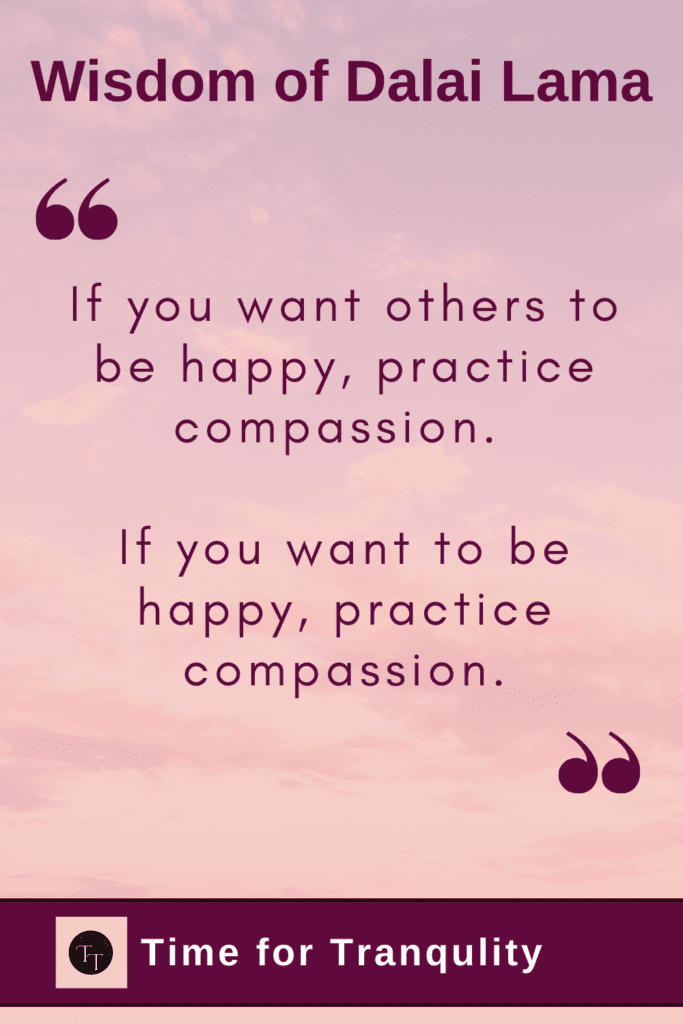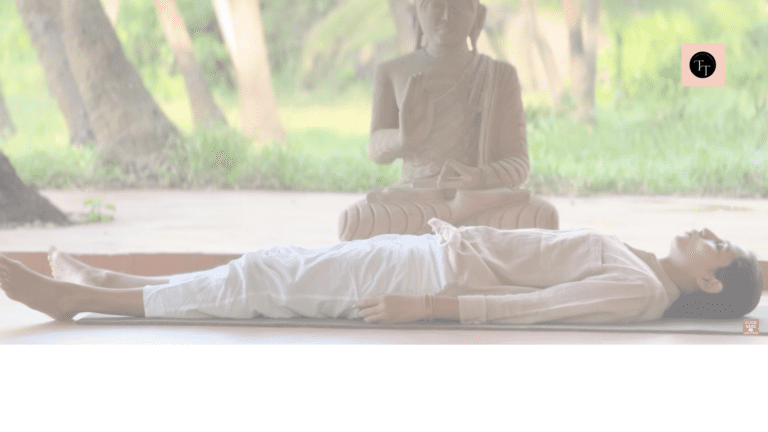Practice Mindful Self-Compassion Meditation for Graceful Aging!
Your life has been full of experiences, both joyful and challenging. You may now wonder, “What comes next?” amid moments of loneliness or anxious thoughts about the future.
There is a stage in life when inner peace and spiritual practices are more meaningful than materialistic desires. Mindful self-compassion meditation can make a big difference at this time.
By learning to be kinder to yourself and more present in the moment, you can nurture a sense of inner peace and emotional resilience, no matter what life brings.
As the renowned Buddhist teacher Thich Nhat Hanh once said, “To love ourselves is to be compassionate toward our own weaknesses.” Mindful self-compassion is about gently embracing yourself just as you are, with kindness and without judgment.
In this article, you’ll learn simple yet powerful ways to practice mindful self-compassion meditation—no prior experience required!
What is Mindful Self-Compassion?
At its heart, mindful self-compassion is about treating yourself, with the same kindness and care you would offer a dear friend.
Don’t you instinctively offer support and warmth, when someone you love, is struggling?
Now imagine doing that for yourself, especially when you have stress, anxiety, sadness, or doubts.
There are two key components to mindful self-compassion:
Mindfulness:
Mindfulness is simply being aware of the present moment. Instead of pushing away difficult feelings or getting caught up in worry, mindfulness allows you to acknowledge what you’re feeling right now—whether it’s loneliness, anxiety, or physical discomfort—without judgment. You observe these emotions with a gentle curiosity.
Self-Compassion:
Self-compassion is being kind to yourself when you’re going through a tough time. Rather than being critical or harsh, you permit yourself to be human. You say to yourself, “It’s okay to feel this way,” and offer comfort and understanding.
Dr. Kristin Neff, a leading researcher on self-compassion, explains, “With self-compassion, we give ourselves the same kindness and care we’d give to a good friend.”
The practice of mindful self-compassion makes you feel more at peace with life’s ups and downs as you age gracefully.
The Benefits of Self-Compassion for Senior Women
Practicing mindful self-compassion can bring about deep, positive changes, especially as you navigate the later stages of life.
By learning to treat yourself with kindness and understanding, you can ease some of the emotional burdens that naturally arise with aging.
Here are a few key benefits:
Reducing Anxiety and Stress:
Poor health, financial worries, and lack of meaningful relationships are quite often the underlying reasons for stress and anxiety, as you age.
Mindful self-compassion helps you gently acknowledge your concerns without getting overwhelmed by them. Instead of feeling trapped by anxiety, you can learn to soothe yourself with compassionate thoughts.
Building Emotional Resilience:
Aging always brings changes—some expected, others not. By practicing self-compassion, you develop the emotional resilience to face these challenges without falling into self-criticism.
You begin to trust in your ability to handle whatever comes your way, with grace and understanding.
Finding Peace and Tranquility:
Mindful self-compassion softens the harsh criticisms you may inflict on yourself. Mindfulness and self-compassion bring you to the present instead of dwelling in the past.
You begin to accept life as it is, cultivate inner peace, and focus on the present rather than worry about what’s ahead.
Self-compassion helps you release unnecessary struggles and embrace peace and tranquility.
How to Practice Mindful Self-Compassion Meditation
You don’t need any special equipment or prior experience to practice mindful self-compassion meditation—just a quiet space, a few minutes of your time, and an open heart.
Here’s a simple meditation you can follow to start bringing more kindness and peace into your daily life:
- Find a Comfortable Spot: Choose a quiet place where you won’t be disturbed. Sit comfortably in a chair or on a cushion, with your back straight but relaxed. Close your eyes or let them softly focus on something in front of you.
- Start with Deep Breaths: In the beginning, take a few slow, deep breaths—inhaling through your nose and exhaling through your mouth.
- Focus on Your Breath: Then, let your breath flow naturally. Begin by paying attention to your breathing and the sensation of air in your nostrils. If your mind wanders, which it will, gently guide it back to the rhythm of your breath. The goal is not to clear your mind but to be aware of each breath as an anchor to the present moment.
- Acknowledge Your Feelings: As you sit in stillness, allow any emotions that arise—whether sadness, anxiety, or loneliness—to come into your awareness without judgment. Label the feeling if it helps: “I feel lonely,” or “I feel anxious.” Just observe the feeling without trying to push it away or change it.
- Offer Yourself Compassion: Now, place a hand over your heart and silently say to yourself, “It’s okay to feel this way. I am human.” Imagine you’re comforting yourself the same way you would a close friend. Let yourself feel that warmth and kindness as you breathe.
- Repeat Loving Phrases: To deepen the practice, you can silently repeat gentle, loving phrases, such as, “May I be kind to myself, May I find peace in this moment, May I give myself the compassion I need.”
- Closing the Practice: Gently bring your awareness back to the room. Take a deep breath, open your eyes, and thank yourself for this time of self-care.

Start by practicing for 5–10 minutes each day. By starting with yourself, you create a foundation of peace that can enrich every aspect of your life.
Overcoming Common Challenges
As you begin your mindful self-compassion meditation practice, it’s normal to encounter a few bumps along the way. Don’t be discouraged—these challenges are simply part of the journey.
Here are some common hurdles and ways to overcome them:
Challenge #1: “My mind won’t stop racing!”
It’s completely natural for your mind to wander, especially if you’re new to meditation. In Buddhism, they call it the “monkey mind”, for a reason.
Rather than feeling frustrated, gently guide your attention back to your breath, whenever you notice your thoughts drifting. It’s like training a muscle—the more you practice, the easier it becomes.
Challenge #2: “I feel guilty focusing on myself.”
Many women, especially those who’ve spent a lifetime caring for others, feel that self-care is selfish.
Remember, though, that taking time to nurture yourself enables you to be more present and compassionate toward others.
Self-compassion is a way to refill your emotional reserves, not drain them.
Challenge #3: “I don’t feel deserving of compassion.”
You may struggle with feelings of unworthiness, believing that compassion is for others, not yourself.
As Brene Brown wisely said, “Talk to yourself like you would to someone you love.”
Recognize that being human means you are worthy of kindness. You are deserving of the same love and understanding.
Incorporating Self-Compassion into Daily Life
Mindful self-compassion doesn’t have to be limited to formal meditation. You can weave it into your everyday life, making it a natural part of how you treat yourself.
Here are a few simple ways to practice throughout your day:
- During Daily Chores: Whether washing dishes or folding laundry, approach these tasks mindfully. Focus on the sensations—the warmth of the water, the softness of the clothes—and when your thoughts become critical or stressful, pause and replace them with a kind phrase like, “I’m doing my best, and that’s enough.”
- Before Bedtime: As you wind down for the night, take a few moments to place your hand over your heart and silently thank yourself for making it through the day. Even if it wasn’t perfect, you did a great job!
- In Moments of Stress: Whenever you feel overwhelmed, stop and take three deep breaths. Gently say, “May I be gentle with myself in this moment.” This small pause can create a sense of calm and comfort.
Self-compassion is being kinder to yourself, creating more peace and emotional resilience in your daily life.
In Conclusion
As you journey through mindful self-compassion meditation, remember it’s a process. Some days will be easy, others challenging. Be as kind and patient with yourself as you would with a friend.
Take small steps, and let this practice nurture peace, strength, and self-acceptance. You deserve this time of healing, kindness, and inner calm.






